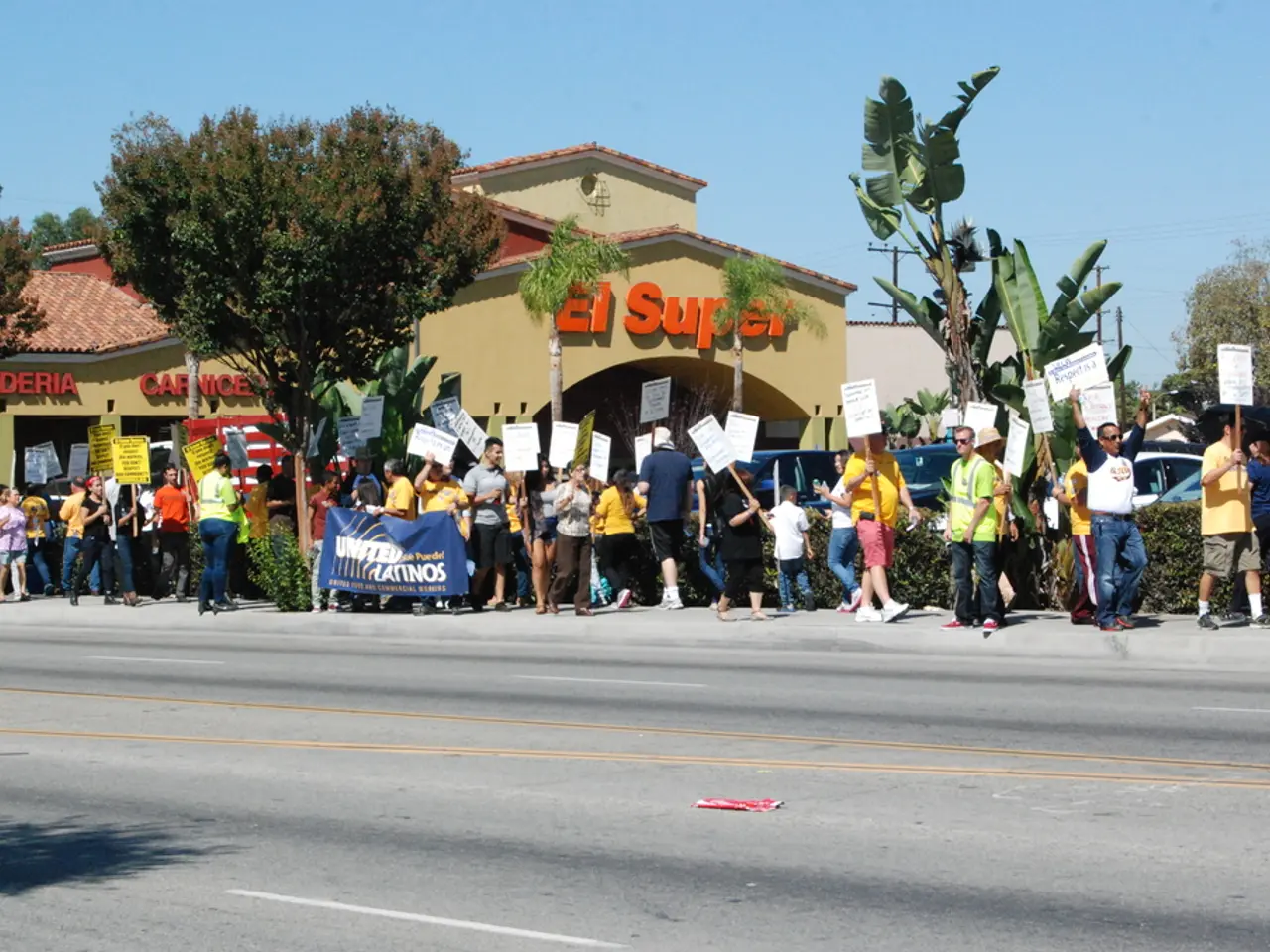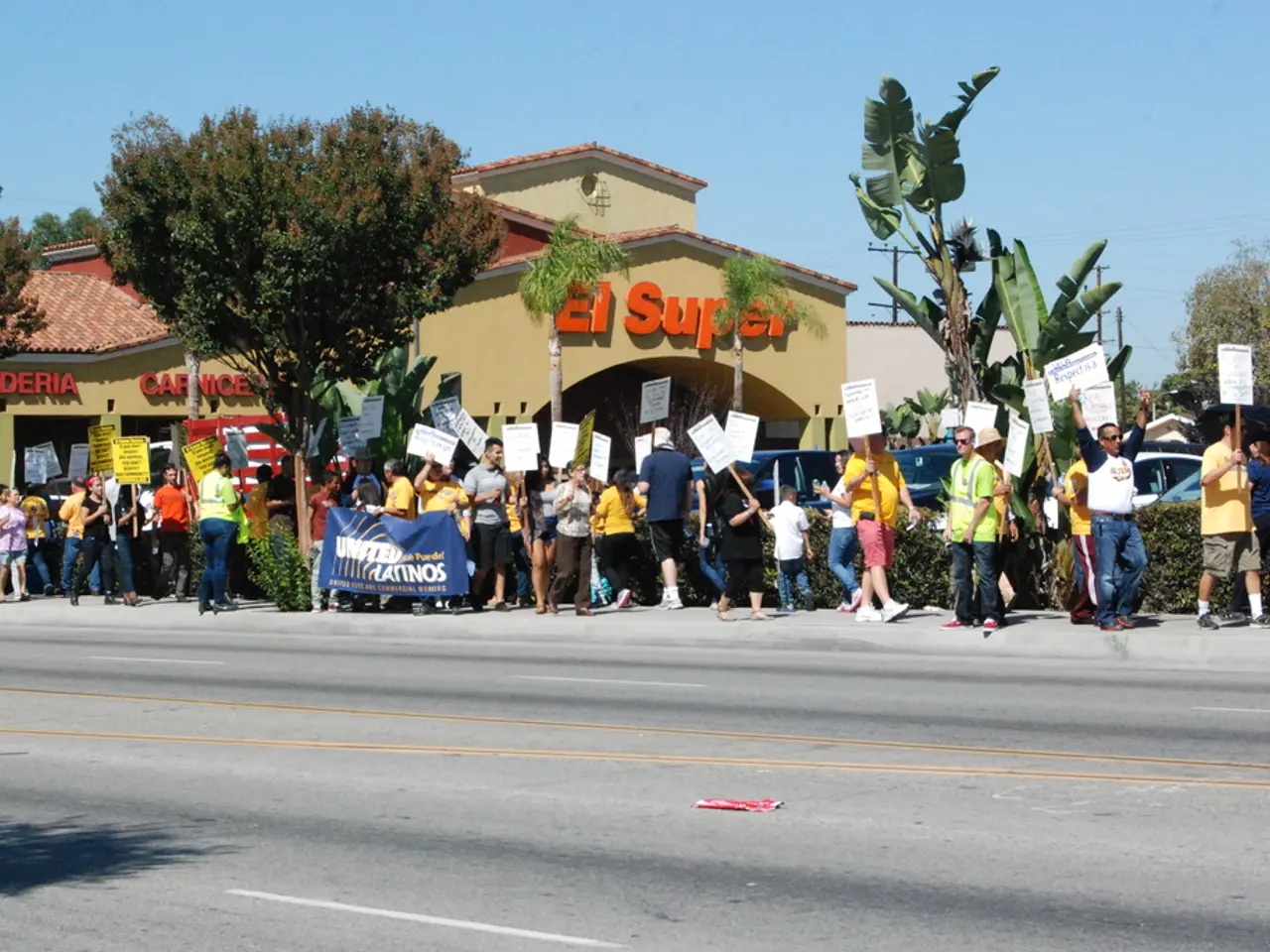Commemorating Hiroshima's 80th Anniversary: The Moment that Reshaped the World
In the shadows of the past, the spectre of nuclear weapons looms large. The recent suggestions by Polish politicians that their country should seek its own nuclear arsenal serve as a stark reminder that the old consensus on deterrence is fraying. This development comes as the world finds itself on the threshold of a new nuclear era: more multi-polar, less predictable, and almost certainly more dangerous.
The devastating impact of nuclear weapons was laid bare on August 6th, 1945, when the US B-29 bomber named Enola Gay dropped the world's first atomic bomb used in warfare over Hiroshima. The atomic bomb, nicknamed "Little Boy", exploded roughly 600 metres above the city centre, resulting in an act of man-made devastation without precedent in human history. The blast levelled much of the city within seconds, killing between 70,000 and 80,000 people instantly and injuring tens of thousands more. In the days, weeks, and months that followed, the death toll continued to climb as radiation sickness set in, with more than 140,000 dead by the end of 1945.
Three days later, a second bomb was dropped on Nagasaki, further underscoring the horrific power of nuclear weapons. Less than a week after the Nagasaki bombing, Japan surrendered, bringing an end to the second World War. The bombing of Hiroshima changed the trajectory of the modern world, revealing the terrifying power of nuclear weapons.
Fast forward to the present, and nine nations now possess nuclear weapons, and others appear determined to join them. Among these are Iran and North Korea, whose nuclear capabilities and statuses are as follows:
Iran: Iran’s nuclear program was significantly damaged by coordinated multiple strikes in June 2025 by Israel and the United States targeting key nuclear sites. Despite claims by the U.S. president that the program was "obliterated," intelligence and IAEA assessments indicate Iran’s program was only set back by a few months at most. Iran still retains some capacity to rebuild its nuclear infrastructure but likely at a smaller scale unless it receives external assistance from Russia, China, or North Korea. Iran has concealed facilities and stockpiles, with some nuclear material no longer under full IAEA chain of custody, complicating verification efforts.
Iran has had the technical capacity to be within 6-12 months of weaponization for over a decade but has chosen not to proceed with actual weapon development. It remains under IAEA safeguards and the Non-Proliferation Treaty (NPT), though it faces strong international pressure and sanctions aimed at limiting nuclear weapons development. The diplomatic community sees a window of opportunity to negotiate limitations, such as Iran committing to forgoing enrichment for several years and returning to full IAEA inspections, but diplomatic efforts remain challenged by regional security tensions.
North Korea: While the recent search results do not provide updated detailed specifics on North Korea’s nuclear capabilities as of August 2025, it is well-established from prior reliable sources that North Korea possesses an operational nuclear arsenal, with nuclear weapons test programs and delivery systems that include ballistic missiles with varying ranges, some potentially capable of reaching the U.S. mainland. North Korea continues to develop advanced nuclear and missile technologies and is broadly recognized as a nuclear-armed state outside the Non-Proliferation Treaty framework.
The end of the Cold War offered some hope, but the danger of nuclear weapons never truly receded. Flashpoints persist, from the Persian Gulf to the India-Pakistan border. The spectre of nuclear annihilation has remained with us since the bombings, sometimes pushed to the background, other times terrifyingly near. The Cold War saw the United States and the Soviet Union build vast nuclear arsenals. The Cuban missile crisis of 1962 brought the world to the brink.
The lessons of Hiroshima must remain more than a historical event. It is a warning, one that still demands urgent attention and constant vigilance. The nuclear ambitions of countries like Iran and North Korea underscore the need for diplomatic efforts and international cooperation to prevent the proliferation of nuclear weapons and the catastrophic consequences they could bring.
- The looming spectre of nuclear weapons and the nuclear ambitions of countries like Iran and North Korea highlight the importance of continued discussions in the realm of politics and general news, as these topics are central to global security and stability.
- In the context of war-and-conflicts, the harrowing history of nuclear weapons use, such as the bombings of Hiroshima and Nagasaki, serves as a potent reminder of the devastating consequences of nuclear proliferation, echoing the need for diplomacy and international cooperation to avoid repeating the past.







